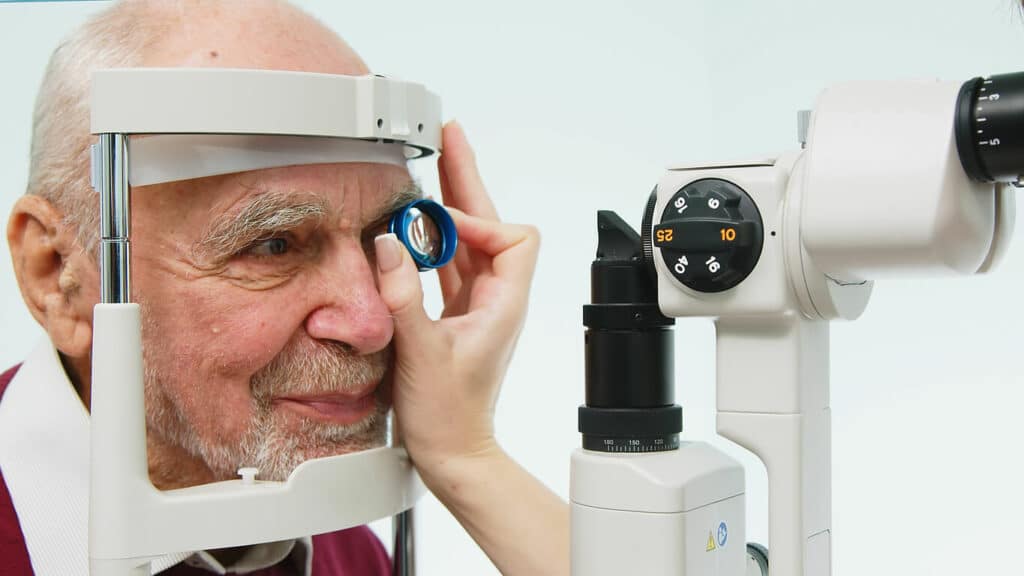
When you search for a glaucoma test or laser eye treatment for glaucoma, you are taking the first step toward protecting your vision from one of the leading causes of blindness worldwide. Glaucoma affects over 3 million Americans, yet half do not know they have it according to the Centers for Disease Control and Prevention.
Glaucoma testing and laser glaucoma treatments provide effective relief for this sight-threatening condition when managed by qualified specialists.
This comprehensive guide explains everything you need to know about glaucoma testing, laser glaucoma treatment, and finding the right specialists to manage your eye health effectively. We will cover the following:
- Early detection saves vision – Regular glaucoma tests can catch this silent disease before permanent damage occurs.
- Laser treatments offer precision – Laser eye treatment for glaucoma provides targeted therapy with minimal recovery time.
- Specialist care ensures success – Finding the right eye doctors makes all the difference in treatment outcomes.
What is Glaucoma and Why Does It Matter?
Glaucoma is a group of eye diseases that damage the optic nerve, which connects your eye to your brain. The optic nerve carries visual information, and when it becomes damaged, you can lose your sight permanently.
Most types of glaucoma happen when fluid builds up in the front part of your eye. This extra fluid increases pressure inside your eye and damages the optic nerve over time. The tricky part about glaucoma is that it usually has no early warning signs.
The disease progresses slowly and often goes unnoticed until significant vision loss has already occurred. This is why regular eye exams are so important, especially if you are over 40 years old or have family members with glaucoma.
How Do Doctors Test for Glaucoma?
Several tests help eye doctors detect and monitor glaucoma. Understanding these tests can help you prepare for your appointment and know what to expect.
Tonometry Test
This test measures the pressure inside your eye, called intraocular pressure. Your doctor may use different methods:
- A puff of air directed at your eye
- A special probe that gently touches your eye after numbing drops
- A handheld device that measures pressure through your eyelid
Normal eye pressure ranges from 12 to 22 millimeters of mercury, but some people develop glaucoma even with normal pressure.
Optic Nerve Examination
Your eye doctor will examine your optic nerve by looking inside your eye with special instruments. They look for changes in the optic nerve’s appearance that might indicate glaucoma damage.
The doctor may take photographs of your optic nerve to track changes over time. This helps them monitor whether the condition is getting worse.
Visual Field Test
This test checks if you have lost any side vision, which is often the first sign of glaucoma damage. You will look into a machine and press a button when you see lights appear in different parts of your vision.
The test takes about 10 to 15 minutes per eye and helps doctors map any areas where your vision has been affected.
Optical Coherence Tomography (OCT)
OCT uses light waves to take detailed pictures of your retina and optic nerve. This advanced imaging technology can detect very early changes that might not be visible during a regular eye exam.
What Laser Glaucoma Treatments Are Available?
Laser glaucoma treatments offer several advantages over traditional surgery for many patients. These procedures are typically performed in your doctor’s office and require minimal recovery time.
Selective Laser Trabeculoplasty (SLT)
SLT uses a special laser to treat the drainage system in your eye. The laser helps fluid drain better, which reduces eye pressure. This treatment works well for people with open-angle glaucoma, the most common type.
A study published in the Journal of Current Glaucoma Practice found that SLT successfully lowered eye pressure by 20-30% in most patients. The procedure takes about 5 to 10 minutes and can be repeated if needed.
How to Find the Best Glaucoma Specialist in Your Area
Finding the right eye care professional is essential for effective glaucoma management. Here are some tips to find the right local specialist for a glaucoma test and laser glaucoma treatment.
1. Consult an Eye Specialist
Visit an ophthalmologist or optometrist for glaucoma care. Ophthalmologists can diagnose, treat, and perform surgery, while optometrists handle vision care and non-surgical treatments.
2. Look for Specialized Training
Choose a specialist with glaucoma-focused training, such as a fellowship or board certification in ophthalmology, to ensure expertise in managing the disease.
3. Consider Experience
Prioritize specialists with extensive experience treating glaucoma. Check reviews, recommendations, or their success rates to ensure high-quality care.
4. Seek a Comprehensive Approach
A good specialist offers holistic care, combining medications, surgeries, regular monitoring, and lifestyle advice for effective disease management.
5. Consider Accessibility
Finding an eye doctor who accommodates your schedule is crucial for consistent care. Look for an eye doctor’s appointment that fits into your routine, particularly if you have a busy workweek.
Many patients benefit from searching for eye doctors open on Saturdays, as it allows for flexibility and ensures that regular check-ups or treatments are not missed.
Glaucoma Test in Washington, MO
Early detection and proper treatment are your best defenses against vision loss from glaucoma. Do not wait until you notice symptoms, because glaucoma often causes no warning signs until significant damage has occurred.
At Advanced Sight Center, we provide comprehensive glaucoma testing and advanced laser treatments to protect your vision. Our experienced ophthalmologists use state-of-the-art diagnostic equipment to detect glaucoma in its earliest stages.
We offer flexible scheduling options, including weekend appointments, to accommodate your busy lifestyle. Our team specializes in the latest laser glaucoma treatment options, ensuring you receive the most effective care available.
Schedule your comprehensive eye examination today by calling the Advanced Sight Center at (636) 239-1650 or using our appointment form.


